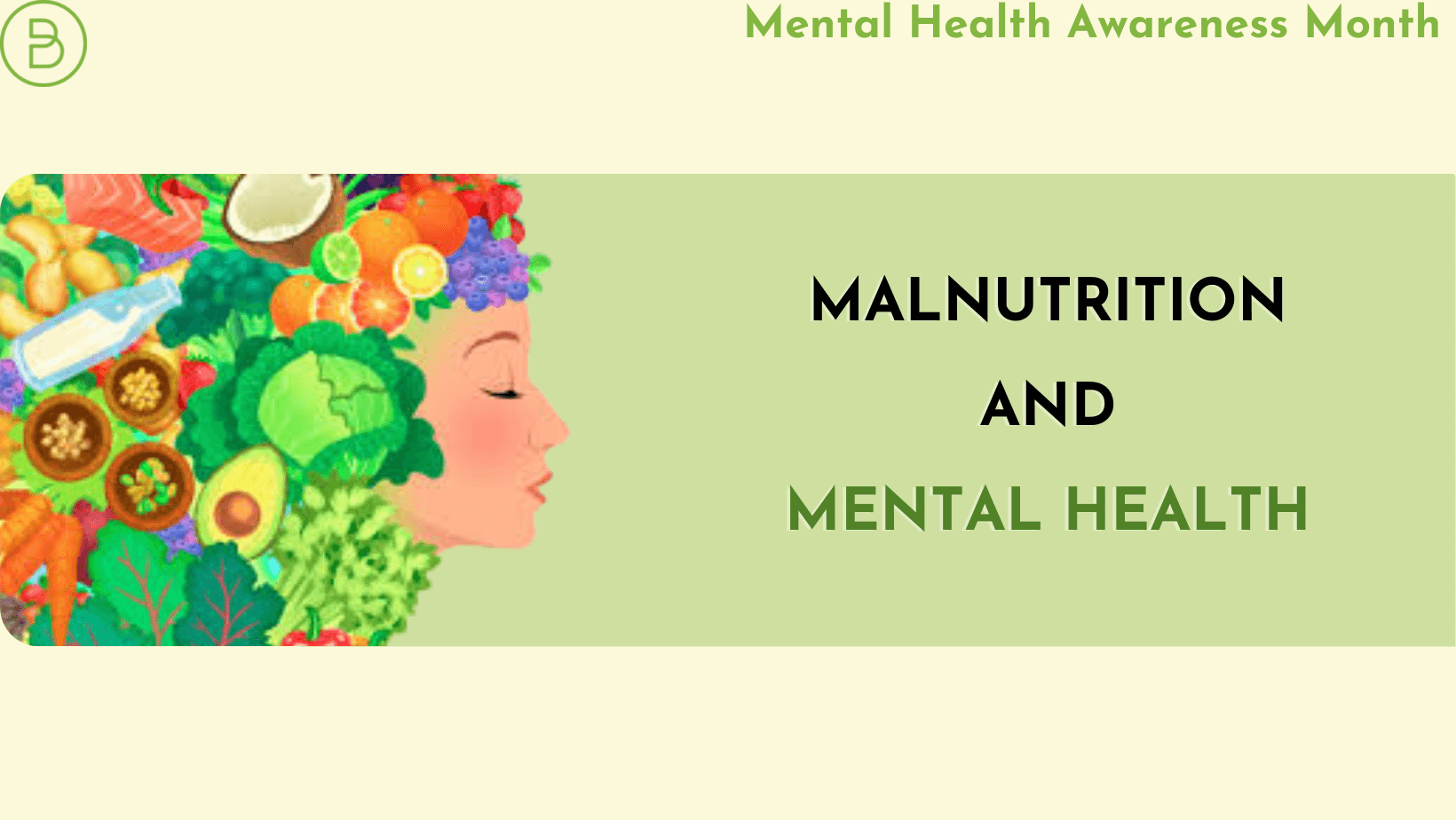A person’s access to sufficient and nutritious food is closely connected with their mental wellbeing. Not only does the lack of access to food lead to stress and anxiety and therefore vulnerability to mental health issues, but also food insecurity may lead to nutritional deficiencies that adversely affect mental wellbeing. Additionally, persons suffering from mental illness lack access to stable income and employment and are therefore at a higher risk of household food insecurity. Research by the United States Department of Agriculture (USDA) found that adults with a mental health disability are up to five times more likely to live in a household that is food insecure. In many Asian and American countries, the dietary intake pattern of the general population reflects that they are often deficient in many nutrients, especially essential vitamins, minerals, and omega-3 fatty acids. A notable feature of the diets of patients suffering from mental disorders is the severity of deficiency in these nutrients.
In India, widespread malnutrition could be fuelling high rates of depression, with studies suggesting that low physical activity and high consumption of packaged and processed foods during the Covid 19 pandemic has increased rates of mental illness among Indians. Foods rich in carbohydrates and protein may promote feelings of well-being and happiness. High consumption of vegetables, fruits, and fish may reduce the risk of depression, while refined sugar, soda, and junk food may increase the risk of developing depression. Low consumption of essential fatty acids, vitamins, and minerals may drive depressive tendencies in individuals.
In India, social norms regarding gender, caste, sexual, disabled and religious minorities determine access to food and nutrition. A study conducted amongst teenage girls in an urban slum in Varanasi found that 47.6% of respondents were food insecure and 64.1%, 57.7%, and 58.4% had high levels of anxiety, depression, or psychological distress, respectively, while 57.2% exhibited a medium level of loss of behavioural control. Within the sample population, SC/ST girls had higher odds of suffering from anxiety, depression and loss of behavioural control. Caste intersects with gender to ensure that Dalit women and girls suffer the most, in terms of malnutrition and therefore also mental health. While the national average of anaemic women is 53 %, 56% Dalit and 59% tribal women are anaemic – several percentage points above the national average. The intergenerational cycle of malnutrition and poor mental health begins with a malnourished mother from a marginalised community giving birth to an undernourished child, who then continues to suffer at least until adolescence. The problem of depression, anxiety and poor mental health is worsened for menstruating girls, who are usually anaemic and lacking in proteins, iron and folic acid. Iron is needed for the production of dopamine in the brain i.e. the neurotransmitter that is responsible for feelings of happiness. The situation is no better for women of reproductive age, for whom food insecurity leads to common mental health problems (CMHPs). A study conducted in Kabul found 69.6% women of reproductive age suffered from food insecurity, out of which depression, anxiety and stress were prevalent at the staggering rates of 89.4, 90.8, and 85.7%, respectively.
Apart from gender, caste and tribal identity, individuals with disability are also more likely to experience food insecurity and poor mental health. Physical and environmental barriers to accessing and preparing food (e.g.: reaching shelves in a grocery store), difficulty accessing disability benefit programs and socio-cultural misconceptions that prevent disabled persons from being hired in stable jobs – all of these factors contribute to psychological distress stemming from food insecurity.
What, then, can be some solutions to this crisis? To begin with, addressing food security for vulnerable populations becomes crucial – in terms of not only providing access to sufficient quantity and quality of food but also ensuring decision-making power over distribution of food resources, access to productive resources such as land and access to stable employment. Additionally, emphasis can be placed on nutritional therapies for mental disorders. Nutritional therapies involve treating mental disorders with dietary supplements of vitamins, minerals, omega 3 fatty acids etc., and scientific evidence points to the efficacy of such therapies in treating various disorders, from schizophrenia and anxiety to ADHD and autism. Nutritional therapies have become a forgotten treatment method because large pharmaceutical companies fund clinical studies on synthetic drugs that they can then patent and sell. However, these synthetic drugs often lead to serious and debilitating side effects that impact the quality of life of the patient suffering from mental illness.10 Natural remedies such as nutritional therapies, when administered under close medical supervision, can be more effective and also more affordable and accessible to patients from different class, caste, race and gender minorities. Finally, mental health interventions must delve deeper into understanding the underlying causes of mental disorders in populations. Food insecurity intersecting with, and caused by, marginalisation on the basis of identity is just one of these underlying factors, many more remain to be uncovered and addressed.
Sources
- https://www.nami.org
- https://www.ncbi.nlm.nih.gov/pmc/articles/PMC2738337/
- https://researchmatters.in/
- https://www.ncbi.nlm.nih.gov/pmc/articles/PMC6121584/
- https://www.aljazeera.com/
- https://www.thecaregrouppc.com/
- https://www.frontiersin.org/
- https://www.sciencedirect.com/
- https://nutritionj.biomedcentral.com/
